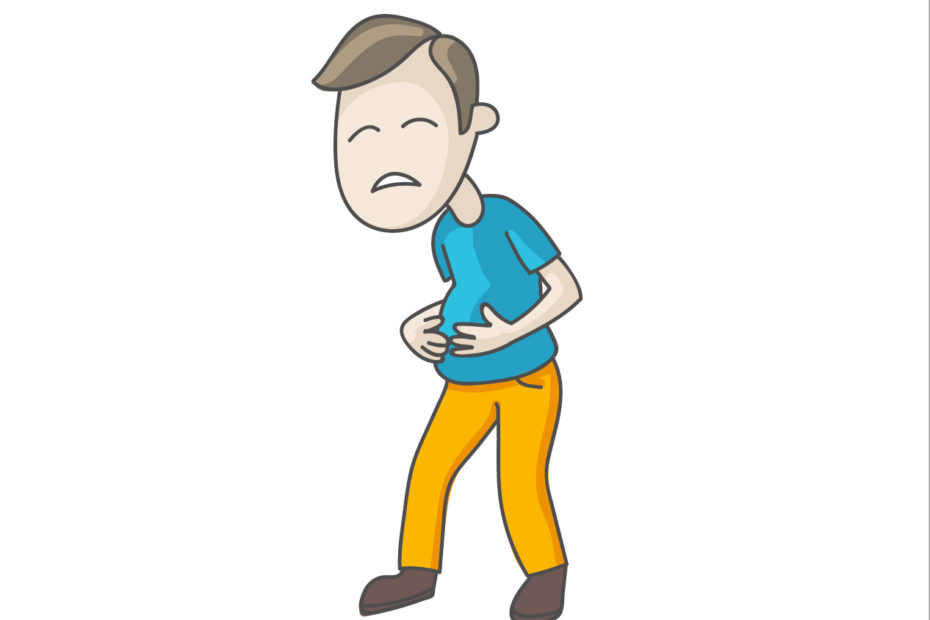Ever had your stomach swollen like a big balloon after a meal? A burning feeling in your chest (and no, not because that special someone just walked in)? Could not stand up straight from stomach cramps? You might have upset the trillions of microorganisms that are crawling around in your gut. Our bodies contain more of these microbes (bacteria, viruses and fungi) than human cells and they are incredibly important for your health1. Amongst other things, they help you to digest food and develop immune cells2. Better keep these little guys happy!
Gut bacteria: the more the merrier
In performing all those essential functions, diversity of your microbiome, the community of microbes living in your gut, is key1. The more different species of microbes, the better!
Unfortunately, our western lifestyles reduce the diversity of our gut bacteria in many ways. A poor diet, medication, pollution, and stress all compromise our microbiome2. Low diversity of gut bacteria can allow other bacteria to take the stage and disturb the microbial balance. This imbalance is associated with the bloated stomach, cramps, heartburn and reflux you might experience.
How to become your microbiome’s BFF
The good news is that we can influence our gut microbiome for the better and deal with that indigestion. In order to become best friends with our microbes, we need to adjust our lifestyle to their needs. So what is it that our little buddies want?
Go wild on fibre
Our gut bacteria are crazy about fibre. They use it to create essential metabolites that our bodies cannot produce, like certain vitamins and amino acids. So how do we get fibre to our gastrointestinal friends? Dietary fibre is found in plant-based foods. More specifically, it refers to the parts of plant-based foods that cannot be broken down by our digestive system. Fruits and vegetables are full of fibre, as are oats, rye, barley, nuts, like almonds and peanuts, and seeds, like sesame seed and flaxseed3. Try to eat at least 30g of fibre a day and your microbes will be thankful!
Avoid sugar, go for good-quality carbs
Sugar is harmful to our microbe-friends. Unfortunately, our modern western culture makes excessive sugar intake far too easy. And I am not just talking about that chocolate muffin or doughnut. The great amount of processed foods available to us, contains loads of sugar. And it is not just sweet things that have sugar in them: think of that jacket potato, plate of spaghetti or slice of bread. It is not just the amount of carbs you eat that is important, the type of carbohydrate is essential for your health. It is important to get your carbs from whole foods: whole grains, vegetables, and fruits are great sources of carbohydrates. Ideally, 40% of your daily food intake should come from vegetables, 10% from fruits and another 10% from whole grains. Note that these percentages might be different on doctor’s advice for people suffering from certain diseases. Besides just carbs, whole foods contain other essential nutrients as well, like fibre and vitamins. Try to avoid processed foods, like pastries, white bread, white pasta, white rice, and fruit juices. These foods generally lack other nutrients and are empty calories. They do not do much for your gut bacteria.
Good carbs, bad carbs, and the glycemic index
An important factor to consider when choosing your carbohydrates is the glycaemic index (GI). This scale ranks carbohydrates by how quickly they cause increases in blood sugar levels. Low GI foods on this 0 to 100 scale, like carrots and quinoa, are ranked below 55.
High GI foods like white bread and potatoes are ranked between 70 and 100. High GI foods cause quick spikes in blood sugar. In order to lower the blood sugar, the body produces the hormone insulin, which is associated with fat storage. Better keep your blood sugar down!
The GI of foods is lowered when you eat them together with fat and protein rich foods. Let us take a look at good and bad sources of fat.
Embrace the good fats, cut down on the bad ones
As with carbs, the type of fat you eat makes a huge difference. Eating to much saturated fat and trans fat can disturb the balance between certain gut bacteria, like Bacteroides (B) and Firmicutes (F) bacteria4. B Bacteria play a role in the digestion of fibre and F bacteria in the digestion of fat2. Your F bacteria population will increase when you eat too much saturated and trans fat. So go easy on those. Saturated fat is found in meat, cheese, and other animal products. Trans fat is found in margarine, crisps, cookies and other baked foods. The good guys in the fat family are the mono- and polyunsaturated fats. You need them amongst other things for your hormone production, to absorb vitamins, and to build cell membranes. Olive oil, most nuts and avocados are full of monounsaturated fats. Polyunsaturated fats are found in fish, walnuts, sunflower seeds, and flaxseed.
Befriend your microbes, go RYH
If you want to include more fibre, good carbs and unsaturated fats in your diet and avoid processed foods, bad carbs and saturated and trans fats, Reset Your Health can be a great help. Enjoy the many delicious and nutritious recipes and get ready to wave goodbye to your stomach pains, your cramps, your heartburn, your bloating and your gas. Instead, you can warmly welcome your new best friends: a huge diversity of species of gut bacteria.
References
1 Quigley EMM. Gut Bacteria in Health and Disease. Gastroenterol Hepatol (N Y). 2013;9(9):560-569. http://www.ncbi.nlm.nih.gov/pmc/articles/PMC3983973/.
2 Rogers Catherine. Gut Well Soon
